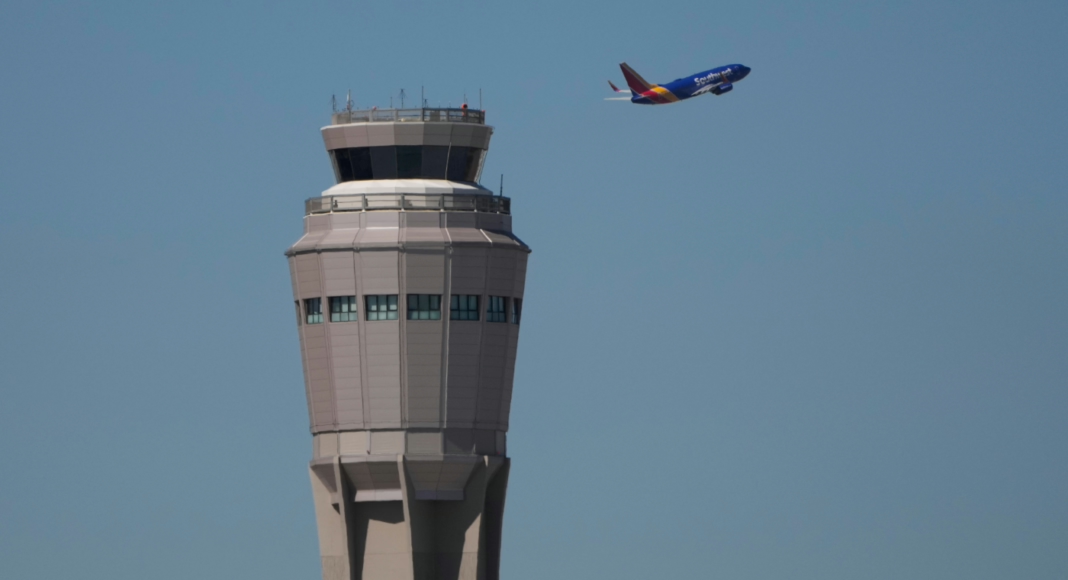Unpaid controllers may need to restrict air traffic as four-week shutdown leaves essential workers scrambling to cover basic expenses while keeping planes flying.
The head of the nation’s air traffic controllers union warned Tuesday that flight restrictions may be necessary to maintain safety as unpaid controllers enter their fourth week without paychecks during the federal government shutdown.
National Air Traffic Controllers Association President Nick Daniels said controllers are struggling to cover basic living expenses, threatening the safety of the aviation system they’re tasked with protecting.
“America’s air traffic controllers are now having to focus on how do they put gas in the car… That makes the system less safe, and the only way to make it safe is to reduce the number of aircraft,” Daniels said on Oct. 28, the day controllers missed their first full-period paycheck.
The warning comes as aviation industry groups intensify pressure on Congress to end the shutdown that began Oct. 1 after lawmakers failed to agree on a government funding bill. Controller shortages have contributed to flight delays in recent days.
The Federal Aviation Administration’s air traffic organization continues operating during the shutdown, but controllers work without pay. The controllers were already in short supply before the shutdown began.
Airlines for America, the industry’s leading trade group, called on lawmakers to act immediately. “We urge elected leaders to act with an appropriate sense of urgency to solve this problem and immediately reopen the federal government,” the group said on Oct. 24. “The quickest and simplest way to ensure those critical employees are paid is by passing a clean CR.”
A clean continuing resolution, or CR, is a short-term spending bill that maintains funding at current levels without new policies. Republicans, who control both houses of Congress, have proposed this approach to reopen the government.
Most Democratic lawmakers have voted against the clean CR because they want legislation that includes healthcare subsidies. Republicans cannot pass the measure without additional Democratic support due to Senate parliamentary rules requiring a supermajority for most legislation.
Pilot unions have joined airlines in calling for swift action. Southwest Airlines Pilots Association President Jody Reven said on Oct. 22: “Considering the strain on our nation’s aviation system, SWAPA strongly urges Congress to pass a clean continuing resolution to fund the government.”
The Coalition for Airline Pilots Association, which represents unions including the Allied Pilots Association and Independent Pilots Association, also backed the clean resolution approach. “We call on Congress to end the government shutdown by passing a clean continuing resolution,” the coalition said in a statement posted on the White House website. The group did not respond to multiple requests for comment.
The Air Line Pilots Association, the nation’s largest pilot union, has not endorsed either side of the political debate but urged lawmakers to reach agreement. “It is time for our leaders to come to the table in good faith to make a deal that will reopen the government,” ALPA President Jason Ambrosi said.
US Department of Transportation documents show the FAA’s shutdown plan calls for furloughing 11,300 of its 44,800 employees. Operations that continue during the shutdown include air traffic control, issuing airworthiness directives, some certification work and accident investigations.

Key Takeaways
- Safety warning issued: Controllers union president warns flight restrictions may be necessary as unpaid workers struggle with basic expenses during four-week shutdown.
- Industry pressure mounts: Aviation groups urge Congress to pass clean continuing resolution, with airlines and pilot unions calling for immediate action.
- Political stalemate continues: Republicans propose clean CR while Democrats seek healthcare subsidies; Senate rules require supermajority to pass legislation.
- Significant workforce impact: FAA has furloughed 11,300 of 44,800 employees, though air traffic control operations continue.



